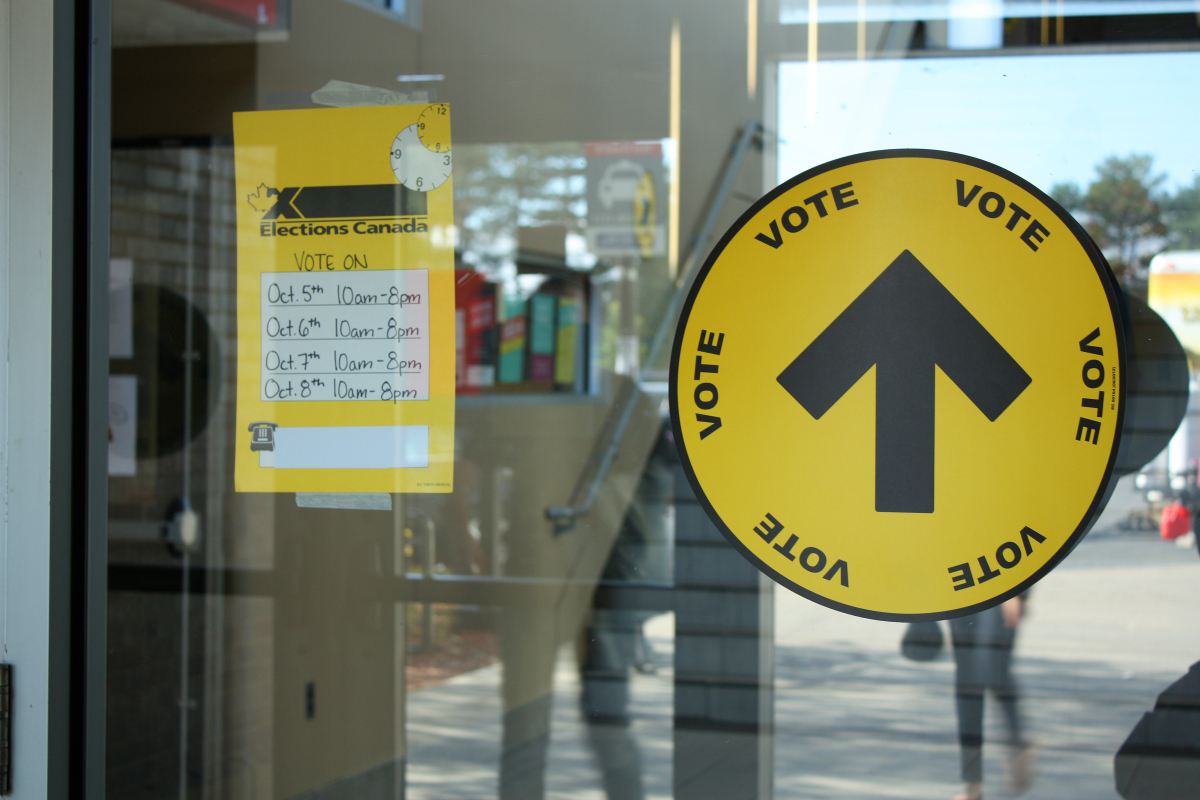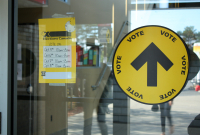Support strong Canadian climate journalism for 2025
Just before 11 p.m. on Sunday, Aug. 18, Liberal Party candidate Steven Guilbeault tweeted “This is pure madness."
The star candidate and former director of the environmental organization Équiterre continued, “Elections Canada won't let environmental groups talk about climate change because @MaximeBernier doesn't believe in it!!! Science is no longer acceptable for them it seems...”
Guilbeault was responding to a Canadian Press report saying Elections Canada had issued a warning that it could classify advocacy around climate change as partisan activity during the upcoming election. People’s Party Leader Maxime Bernier doesn’t believe in climate change. That was enough for Elections Canada to say they would construe a position on the issue as proxy support for one party over another.
This has serious consequences for environmental organizations like Guilbeault’s former group. Under current election law, a group engaging in any election-related activity that’s deemed partisan and costs more than $500 must be registered as a third party.
Groups that don't comply could be punished with fines adding up to several multiples of the amount they originally spent on the campaign activities. And those that do register as third parties must disclose all spending related to the activities, including surveys, campaigns and membership correspondence.
This amounts to an incredible attack on free speech, as elections are important moments for organizations to advocate for their issues. A non-partisan group fighting for women’s rights, workers’ rights, the environment or a new infrastructure project could just as easily be considered partisan, given Elections Canada’s policy, even if it doesn’t advocate for a particular party or candidate.
The irony is that this policy is being ushered in by a Liberal government elected in part thanks to a promise to reform the electoral system by moving away from first-past-the-post. This was Trudeau’s biggest broken promise. Instead of reforming the system, the Liberals passed legislation upon which Elections Canada is basing its warning to environmental groups. Perhaps Guilbeault is unaware of this.
The Elections Modernization Act (EMA) came into force in June 2019. It defines partisan activity as including: “canvassing door-to-door, making telephone calls to electors and organizing rallies... and that promotes or opposes a registered party or eligible party or the election of a potential candidate, nomination contestant, candidate or leader of a registered party or eligible party.”
According to Elections Canada’s stated interpretation of this definition, as it pertains to the coming election, anyone who promotes policy rooted in climate science is in effect campaigning against Bernier — and if they’re doing campaign advertising, they’ll have to register as a third party.
This has the potential to turn every issue into a partisan issue. This is particularly absurd, as many citizen movements seek to convince all parties to adopt their issues, rendering them non-partisan by definition. A group fighting for a new road in town might start off with only one party’s support, but if they’re effective, they can convince all the parties to promise to build that road. Indeed, that would be their ultimate goal.
For unions in regular contact with their memberships to advocate for issues related to whatever political issues those memberships have taken, these changes severely limit the freedom they have to advocate on behalf of their members. To what limit? Would this include convention costs if a convention fell in the pre-election period? Does this include staff salaries if the staff are mounting the campaign? If members vote to explicitly support a local candidate, do the expenses related to that meeting need to be declared?
And, as the EMA also prohibits third parties from working together, labour coalitions — a long-standing way labour has advocated for its issues — risk putting each union registered as a third party in violation of the act. Prohibiting unions and social movements from working together in coalition is an intense attack on people’s free association.
Before the new law, advocacy groups were not subject to spending limits. Outside of elections, charities had to be careful to dedicate no more than 10 per cent of their budgets on political activities, and Stephen Harper mandated audits of many charities, especially progressive ones, to see if they surpassed this limit. That limit was struck down in 2018 by the Ontario Superior Court of Justice as unconstitutional.
Registered charities, meanwhile, remain prohibited from engaging in partisan activities. These activities are regulated by tax laws related to charitable status. The EMA only changed Canada's election code.
Elections Canada responded to media reports by clarifying that partisan activity regulated by the act must be related to paid advertising. The statement from Chief Electoral Officer Stéphane Perrault admitted that the third-party rules are complex, but activities like canvassing wouldn’t be considered third-party partisan activities. But he didn’t say canvassers promoting an issue that Elections Canada believed to encourage or dissuade voters toward or away from a party or candidate would be regulated by the act, which they would be.
If the Liberals were trying to prohibit American-style PACs from forming in Canada, their vague language has created an intense overreach in how Elections Canada has interpreted this.
With the writ dropping in just a few weeks, unions and public-interest organizations will all need to decide: will we submit to the legislation and play it safe, or will we follow the will of our members and refuse to comply?






Comments
Beyond bizarre. More and more looking like Harper.